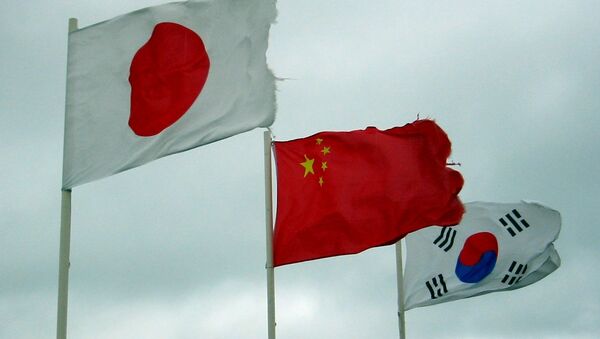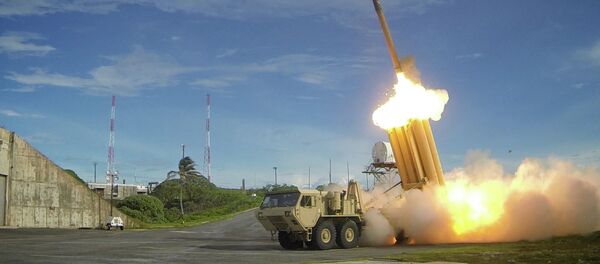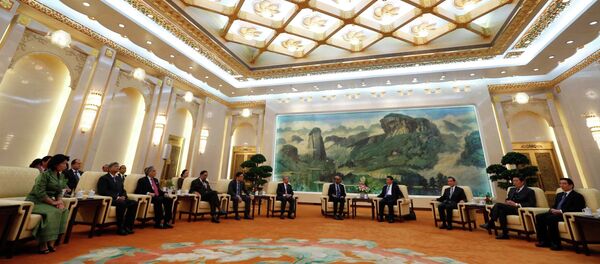Japanese politicians, even opposition-minded ones, like Tsuyoshi Saito, formerly a Deputy Chief Cabinet Secretary of Japan, take a positive view of the Washington consultations.
“I think the decision to hold such a meeting between Japan, South Korea and the United States was essentially a good idea. Japanese leaders have not met with their counterparts from neighboring China and South Korea since Shinzo Abe was re-elected as Prime Minister in December 2014,” Tsuyoshi Saito told Sputnik.
“We have seen certain progress in our relations with China, but not with South Korea… That’s why I can only welcome such consultations on the situation in East Asia where the sides can discuss a raft of hot-button issues that concern us all…” he added.
When asked by Radio Sputnik which way relations between Japan and South Korea would go after the Washington meeting, given their existing territorial disputes and different views on their shared history, Mr. Saito said:
“The territorial problem hasn’t gone anywhere, but this does not mean that our two countries cannot have a dialogue. Whether we start with discussing security issues or economic cooperation is another matter… And still, being fully aware of the complexity of the relationship between Japan and South Korea, the United States is trying to act as a go-between, encouraging these two neighboring countries to exchange opinions on divisive issues and ease existing tensions, I think this is good…”
However, just how favorably the growing cooperation between the US, Japan and South Korea and their coordinated policy in Asia and the Pacific are going to impact the situation in the region depends on the role Washington assigns to its Japanese and South Korean allies, says Andrei Ivanov, a senior foreign policy expert at the Institute of International Relations in Moscow.
“As we can see from what has been going on in Europe, kowtowing to Washington’s policy is not always the right way to go for sovereign states. By adopting, under Washington’s pressure, a set of anti-Russian sanctions, the EU countries did themselves a lot of harm. And their support, again with Washington’s bidding, for the undemocratic, corrupt and irresponsible Ukrainian government and its anti-Russian policy is fraught with a serious crisis, even war…”
This is exactly what can happen also in the Asia-Pacific region. The United States is ramping up its political and military cooperation with Japan and
South Korea allegedly for the sake regional stability. It’s very clear, however, that the Americans desperately need allies in the face of China’s growing economic and military might and want to make Japan and South Korea instrumental in their effort to contain China.
Even more detrimental to both Japan and South Korea could be their following Washington’s policy of containing China, Andrei Ivanov said.
Rather than intimidating Beijing this would encourage it to build up its military muscle. Moreover, this could hamper Sino-Japanese and Sino-South Korean economic cooperation or even thwart the trilateral talks on establishing a free trade zone in the Asia-Pacific region.
This, in turn, would play right into the hands of the Americans’ who see the project as a threat to the dollar and their economic interests in the region.
“But why should the Japanese and South Koreans sour relations with their biggest economic partner China just to please Washington?” Andrei Ivanov wonders.





